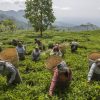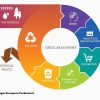
The year is 2008. Jenny and Ashwin Koleth, along with friends, have spent countless hours on the ground and in the office preparing to launch their non-profit. They have seen the devastating effects of powerlessness in many places around the world, and they have decided to spark change. They are hopeful that all the work they have done will pay off, improving the lives of community members in southwestern India. Just a year after they
Read more ... →



